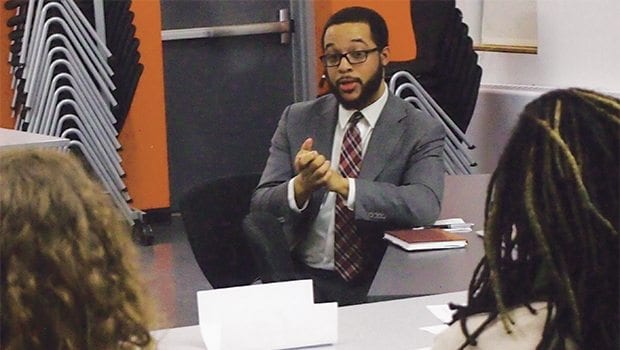
With the city’s six-month pilot project with body-worn police cameras just weeks away from completion, there are differing opinions on whether the Boston Police Department should move forward with full implementation or, as Police Commissioner Bill Evans suggests, extend the pilot project for another six months.
During a hearing at the Mattapan Library in January, Evans outlined a case for collecting more data on the cameras before they’re fully implemented. The researchers hired to analyze the data, Jack McDevitt and Anthony Braga of Northeastern University, told reporters there’s not yet enough data on use of force.
Evans also cited the $200,000 price tag for the researchers’ study of the pilot project as a major hurdle, but activists pushing for body camera implementation say the city should not delay full implementation.
“Every other major city in the country is moving forward with implementing body cameras,” said Segun Idowu, co-founder of the Boston Police Camera Action Team. “Body cameras are inevitable. I don’t know what other bits of information we’re going to need to improve a program that has been implemented in other cities.”
Differing views
Idowu notes that the Boston Police Department didn’t hesitate to apply for federal grants to implement a social media monitoring program, but have not applied for a share of the $20 million the federal government has made available for body cameras annually for the last few years.
Idowu’s concerns were echoed by other supporters of full implementation.
“The City of Boston should adopt full implementation of body cameras for all police officers,” said District 7 City Councilor Tito Jackson. “The city has paid more than $38 million over the past seven years for police incidents. Body cameras are not a punishment. They provide accountability and transparency on both sides.”
City Councilor Andrea Campbell, who chaired the Mattapan meeting last month and heads the council’s Committee on Public Safety and Criminal Justice, did not speak to the Banner for this story. Her aide emailed a press statement voicing support for extending the pilot program.
“I support extending the pilot and look forward to getting a more detailed cost analysis of full implementation, and continuing conversations with residents, including in communities of color, who still have concerns when it comes to issues of surveillance,” her statement read.
Jackson, however, said extending the pilot would lead to “paralysis by analysis.”
“Boston is a world-class city,” he said. “It should be a leader, not a follower in 21st century technology.”
Idowu held a meeting last week at the Grove Hall Community Center to gauge community support for implementation of body cameras. He has meetings planned for March 1 at the Hyde Park Community Center, March 15 at Temple Israel in Brighton and March 20 at the main branch of the Boston Public Library in Copley Square.







